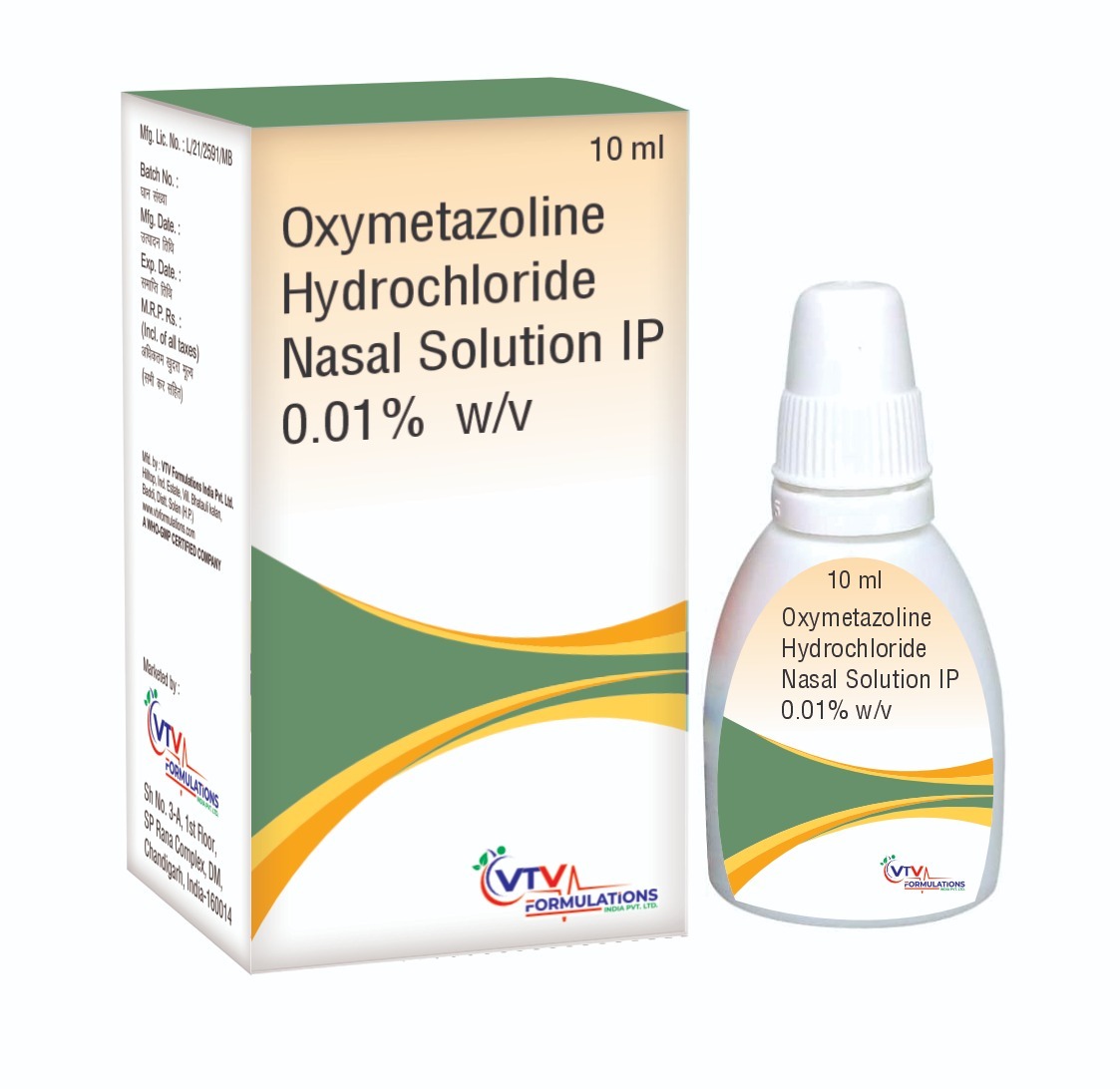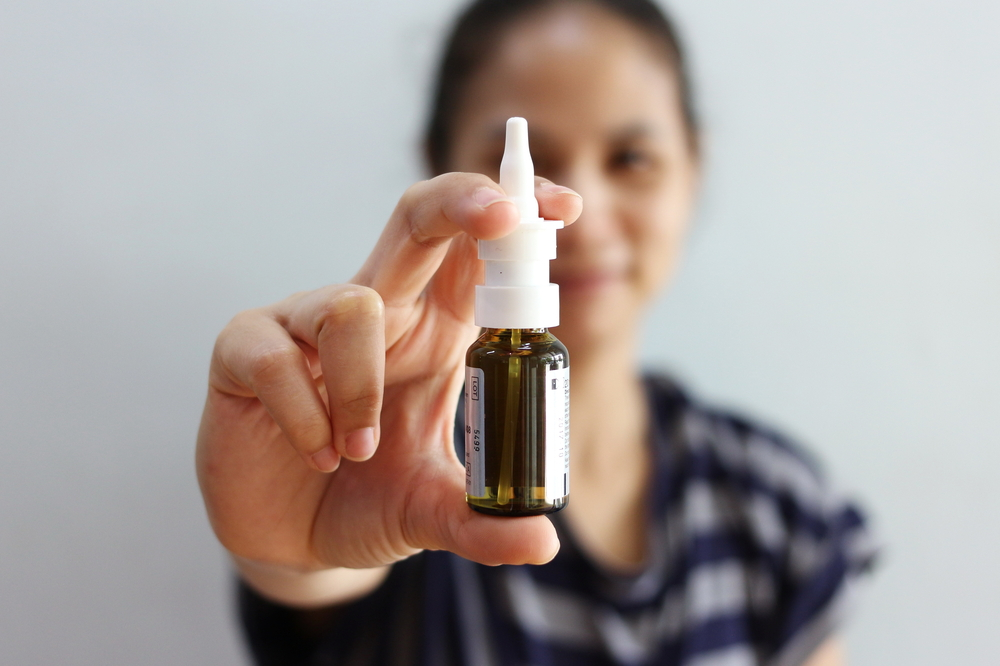Nasal Spray Third Party Manufacturer

Nasal sprays have become an essential tool in modern medicine, offering a highly effective and convenient method for delivering medications directly to patients. Unlike oral medications, nasal sprays deliver drugs through the nasal mucosa, which allows them to bypass the gastrointestinal tract and the liver’s first-pass metabolism. This means faster absorption, more immediate effects, and fewer systemic side effects. As a result, nasal sprays are particularly useful for conditions that require quick relief, including seasonal allergies, sinus infections, colds, and asthma. Their role has even expanded to hormone therapy and the delivery of certain vaccines and psychiatric medications.
One of the main advantages of nasal sprays is their versatility. They can contain antihistamines for allergy relief, decongestants for sinus blockages, corticosteroids for inflammation, or pain-relief agents for rapid symptom control. Additionally, the convenience factor cannot be overstated. Unlike tablets or syrups, nasal sprays require no water and can be administered discreetly, making them ideal for busy individuals or situations where immediate relief is necessary. For example, someone experiencing a sudden migraine or an asthma flare-up can benefit from a metered-dose nasal spray almost instantly, whereas oral medications may take 30–60 minutes to become effective.
Another advantage of nasal sprays is their ability to target specific areas, such as the sinuses, providing localized relief while reducing systemic exposure. This targeted delivery is particularly valuable for patients with chronic sinusitis or nasal allergies. Innovations in formulation technology have further expanded their potential. Today, nasal sprays are not only limited to symptomatic relief but are also being used for hormonal therapies, such as desmopressin for diabetes insipidus, and emerging treatments like ketamine sprays for depression.
Moreover, nasal sprays have gained popularity due to their travel-friendly and non-invasive nature. Patients who are needle-averse or have difficulty swallowing tablets can benefit significantly. With the rise of nasal vaccines, including influenza and COVID-19 nasal vaccines, the demand for reliable nasal spray products has only increased. For pharmaceutical brands, this growing demand translates into ample opportunities, but success depends heavily on choosing the right manufacturing partner who can maintain consistent quality and compliance.

Third-Party Manufacturing in India: Advantages and Customization
India has emerged as a global hub for pharmaceutical manufacturing, offering a wide range of certified facilities capable of producing high-quality nasal sprays. With thousands of WHO-GMP, ISO-certified, and FDA-approved plants, India supports both domestic needs and international exports. Small and mid-sized pharmaceutical companies often face challenges in building infrastructure for nasal spray production due to high capital requirements, complex machinery, and stringent quality standards. This is where third-party manufacturing plays a crucial role.
Third-party or contract manufacturers produce medicines on behalf of other brands under their labels. For nasal sprays, this model is particularly beneficial due to several factors:
- Specialized Machinery : Producing nasal sprays requires precise spray pumps, micro-dosing nozzles, and accurate filling systems. Not all pharmaceutical companies can afford or maintain such equipment in-house.
- Sterile and Cleanroom Environments : Nasal sprays must be manufactured under stringent aseptic conditions to prevent contamination. ISO Class 7 or better cleanrooms, laminar airflow units, and aseptic filling lines are mandatory for safety and compliance.
- Regulatory Compliance : Third-party manufacturers are well-versed in regulatory frameworks, including India’s Schedule M guidelines and international GMP standards. This ensures your product meets both domestic and export requirements.
- Innovative Packaging : Metered-dose sprays, child-resistant designs, travel-sized bottles, and eco-friendly packaging are offered by experienced manufacturers. These innovations help your product stand out in the competitive market.
Customization Options
Customization is vital in today’s pharmaceutical landscape. Reputable Indian manufacturers provide services such as:
- Custom Formulations : Alcohol-free, preservative-free, or sugar-free nasal sprays for sensitive populations.
- Private Labeling : Branding, label design, and packaging tailored to your market segment.
- Specialty Variants : Pediatric sprays, plant-based decongestants, or elder-friendly devices.
- Flexible Dosage Forms : Metered-dose sprays, unit-dose sprays, or continuous-flow bottles to suit therapeutic needs.
Cost Considerations
Partnering with a third-party manufacturer significantly reduces CAPEX and operational expenditure. However, costs can vary, and a detailed evaluation is necessary:
- Base Manufacturing Cost : Includes raw materials, processing, quality control testing, and standard packaging.
- Setup Fees : For custom molds, specialized pumps, or formulation adjustments.
- Minimum Order Quantities (MOQs) : Some manufacturers require large initial orders to optimize production efficiency.
- R&D Fees : Charges for developing a unique nasal spray formula.
- Regulatory Support : Fees for stability studies, CTD/ACTD documentation, and batch certification.
While cost efficiency is important, quality should never be compromised. Choosing the cheapest option may lead to contamination risks or regulatory issues, which could harm patient safety and brand reputation. The goal is value over cost—a partner who provides both reliability and compliance.
Selecting the Right Manufacturer and Ensuring Compliance
Selecting the right nasal spray manufacturer is crucial for long-term success. The wrong partner can result in production delays, quality issues, or regulatory non-compliance. Here are key factors to evaluate:
Questions to Ask Potential Manufacturers :
- What is your experience in producing nasal sprays?
- Which certifications do you hold (WHO-GMP, EU-GMP, ISO, FDA)?
- Can you provide test reports, stability data, and Certificates of Analysis (CoAs)?
- What packaging and dosing options are available?
- What is the typical production turnaround time per batch?
- Do you offer trial samples before full-scale production?
These questions help identify manufacturers with both technical expertise and a strong quality track record.
Building Long-Term Relationships :
Third-party manufacturing is more than a transactional relationship. You are entrusting them with your product and brand reputation. To build trust:
- Transparency : Share specifications, formulations, and expectations upfront.
- Quality Agreements : Formal agreements detailing responsibilities for testing, recalls, and audits.
- Site Visits : Visiting production facilities helps ensure adherence to cleanroom protocols.
- Performance Reviews : Quarterly assessments for delivery timelines, complaint resolution, and rework rates.
- IP Protection : Use NDAs to safeguard proprietary formulations and packaging designs.
Regulatory and Quality Compliance :
In India, nasal spray manufacturing must adhere to:
- Schedule M of the Drugs & Cosmetics Act
- Good Manufacturing Practices (GMP)
- Pharmacovigilance and Batch Recall Capabilities
For exports, additional compliance includes:
- US FDA regulations for the United States
- EMA guidelines for Europe
- TGA, ANVISA, or other country-specific regulations
Reliable manufacturers are audit-ready, maintain detailed documentation, and are experienced in handling international export processes.
Post-Production Considerations :
Once manufacturing is complete, attention shifts to distribution and logistics:
- Temperature-controlled storage for sensitive formulations
- Repackaging and labeling for different markets
- Shelf-life testing and batch renewals
- Coordination with logistics vendors for timely delivery
Manufacturers who offer post-production support or connect you with reliable service providers add significant value to your business.
Market Outlook and Conclusion
The demand for nasal sprays is rising globally, driven by innovations in drug delivery and growing awareness of their benefits. Modern nasal sprays are not just limited to allergy relief; they now include:
- Pain relief medications
- Hormonal therapies, such as oxytocin and desmopressin
- Flu vaccines and COVID-19 nasal vaccines
- Migraine treatments
- Psychiatric treatments, including ketamine sprays
Advantages of Nasal Sprays :
- Fast Onset of Action: Rapid absorption via nasal mucosa for immediate relief.
- Non-Invasive: Ideal for patients unable to swallow pills or who are needle-averse.
- Travel-Friendly: Convenient and discreet administration.
- Targeted Delivery: Efficiently treats localized conditions such as sinusitis or congestion.
Checklist for Choosing a Manufacturer :
- Sterile production facilities with Class 7 or better cleanrooms
- Expertise in formulation support and dosage flexibility
- Device compatibility for various spray types
- Labeling and regulatory compliance including batch numbers and expiry dates
- Flexibility in pilot batch and bulk production
Conclusion :
Choosing the right nasal spray third-party manufacturer in India is critical for brand credibility, patient safety, and regulatory compliance. Evaluating partners based on facility quality, certifications, customization options, cost transparency, and communication ensures a profitable and scalable nasal spray business. India’s robust pharmaceutical ecosystem provides ample opportunities for brands to grow—but success ultimately depends on selecting a partner who aligns with your goals, understands your product, and consistently delivers quality.
By prioritizing quality, regulatory compliance, and strong collaboration, pharmaceutical companies can launch effective nasal spray products that meet market demands, enhance patient satisfaction, and strengthen brand reputation. The right partnership can transform a simple idea into a trusted, widely distributed product with global potential.
Explore Related Blogs
Stay informed with our curated selection of similar blogs, offering expert perspectives on pharmaceutical trends, regulatory updates, and product innovations.
These articles are designed to help healthcare professionals, partners, and businesses stay ahead in an ever-evolving industry. Explore more to deepen your knowledge and make informed decisions.